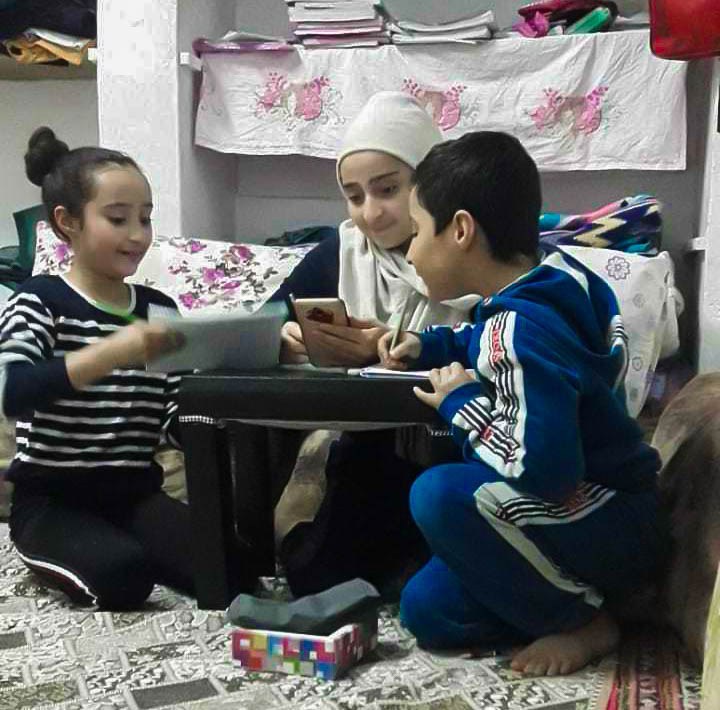To protect the health of the children, their families and our staff, we had to close the two centres we support, but the system we have developed allows them to continue learning at home. Our local team is in contact with the parents of the children through the use of WhatsApp groups and an online platform specially developed by our technicians for this purpose. This allows them to continue their learning in Arabic, Mathematics and Computer Science. They learn how to send emails, do online research, compare the information they found and assess the reliability of sources. The local TSF teacher staff send resources, exercises and video tutorials to the children every day, which ensures constant contact with them and allows them to regularly give them feedback on their work.
In this disadvantaged context, some families do not have access to the Internet or do not have smartphones or computers at home. In order to not disadvantage those who do not have these resources and make up for it, TSF provides free Internet data packages and tablets so that everyone can continue their distance learning. The adaptation to distance learning is a success: 80% of the pupils are active and the parents are satisfied with the process.
Since 2013, our educational program for Syrian refugee children in Gaziantep allows them to learn several subjects interactively, in a safe and caring environment. The COVID-19 situation adds to the difficulties of Syrian refugee families in Gaziantep; for children, the risk is to undergo an additional suspension of their school career. This distance education program keeps the children connected, and helps them get through these trying weeks with regular activity proposals to reduce the impact of this new crisis on their education.


